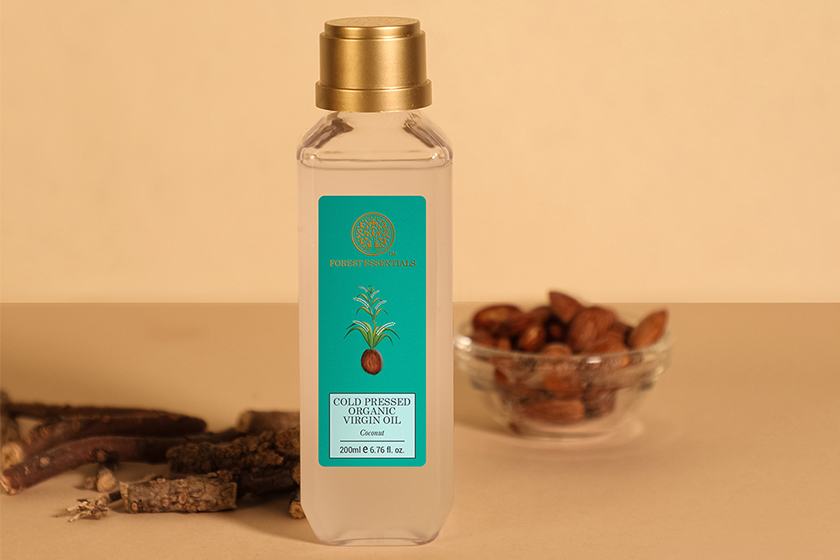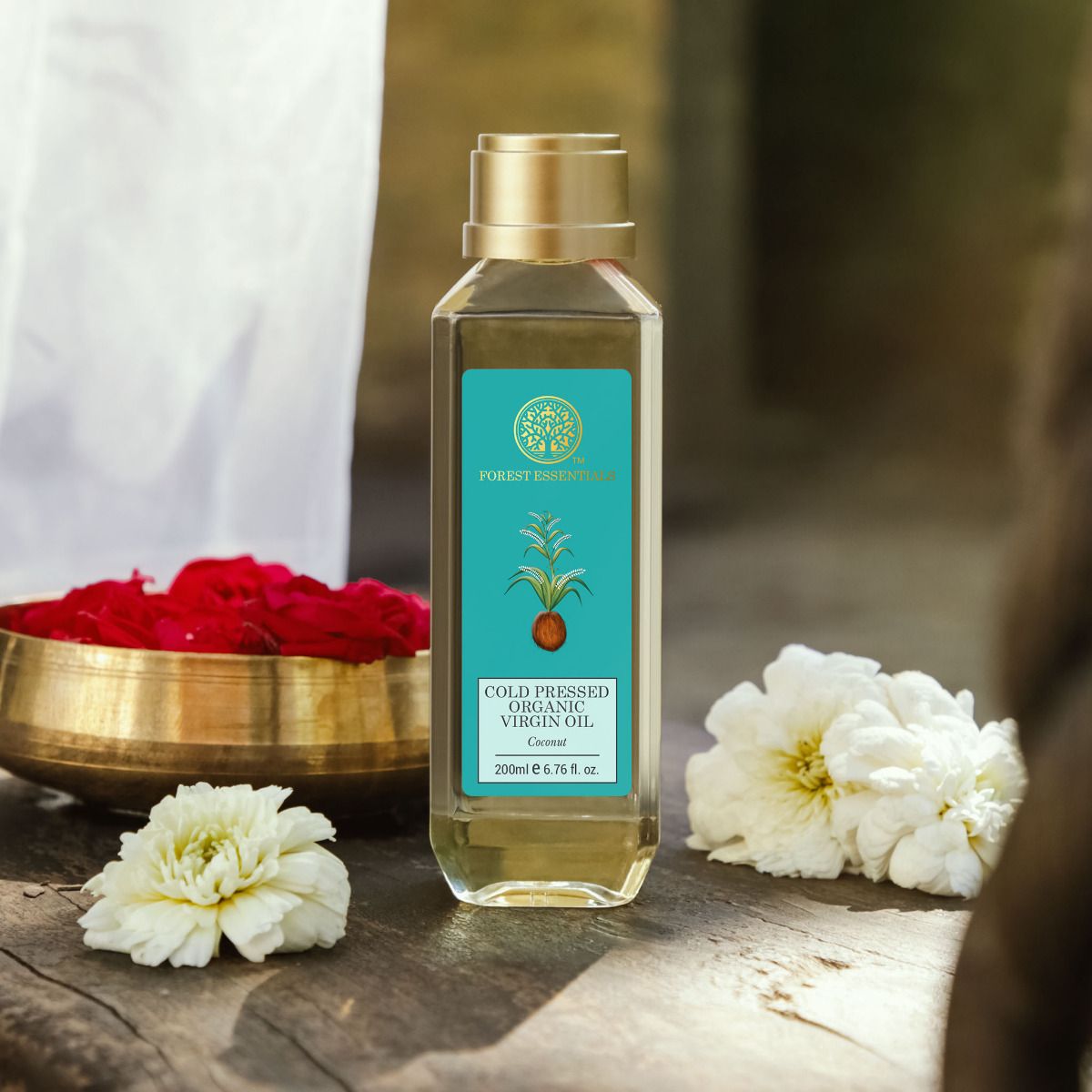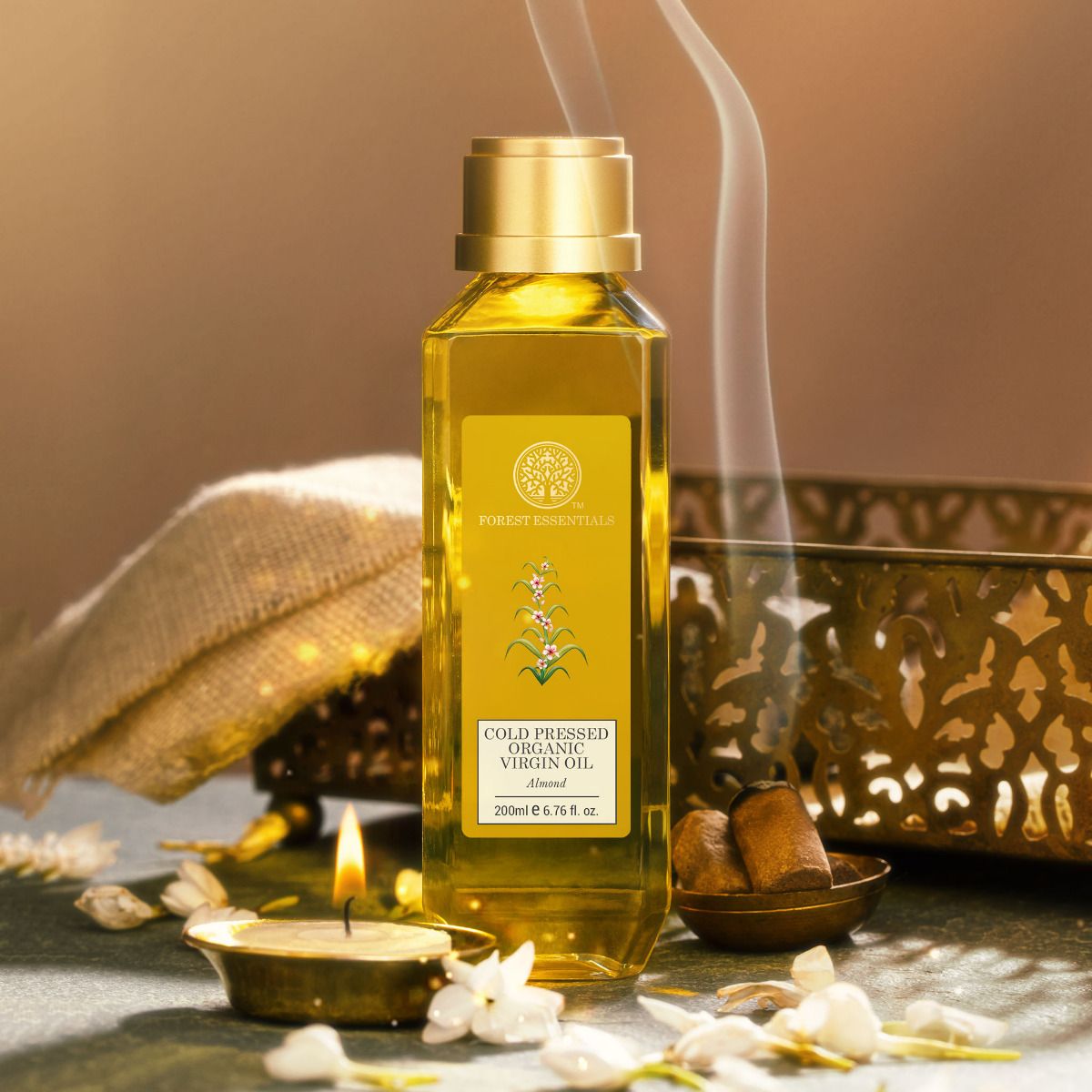As your grandmother would put it, amidst the very many haircare products available in the market, nothing can surpass the magic of her treasured coconut oil.
The age-old practice of applying coconut oil to the skin and hair finds its origin in Ayurvedic medicine, which stretches back nearly 4,000 years. Read on to discover the therapeutic and medicinal benefits offered by this timeless elixir.
Coconut Oil for Hair
The sweet essence of coconut is soothing for both the body and the mind. It helps in balancing out excessive Pitta by inducing a cooling sensation, while its nourishing and moisturising properties help balance the Vata component.
Coconut oil comprises of essential components such as capric acid, caprylic acid, and lauric acid, which offer remarkable benefits. Lauric acid, that is also found in mother’s milk is believed to boost immunity and hair growth. Alongside this, Coconut oil is rich in antioxidants and possesses antibacterial, antifungal, and antimicrobial properties, collectively having positive impact on the human immune system.
Benefits of Using Coconut Oil

With its abundant fatty acid content, Coconut oil efficiently replenishes moisture deep in both your hair and scalp. It potently prevents the loss of protein in hair and effectively promotes the circulation of blood, nutrients, and oxygen to the scalp’s surface. Regular application of coconut oil twice a week not only ensures deep nourishment but also shields the hair against environmental damage.
Coconut oil is an efficient solution for dandruff. According to Ayurveda, the cause of dandruff lies in the imbalance of the Doshas, namely Vata and Pitta. Coconut oil effectively harmonizes these two primary doshas: Pitta, responsible for inflammation, and Vata, responsible for dry scalp and flaking. It also adds a natural bounce and sheen to the hair.
According to studies, Coconut oil possesses a natural SPF of 8, surpassing the sun protection factor of other oils such as castor, almond, and sesame oil. This makes Coconut oil an excellent natural sunblock for hair, safeguarding it against UV damage.
Different Ways to Use Coconut Oil for Hair
The potential of Coconut oil in haircare extends beyond the practice of oiling. Come along as we delve into our expert-approved methods of including Coconut oil in your haircare regimen. By following these simple steps, you can revitalise your hair to look visibly healthier and well-nourished.
DIY Hair Mask
To enhance the health and vitality of your hair, go for a Hair Mask.
Combine 2-3 tablespoons of virgin coconut oil with 1 tablespoon of amla juice or amla powder. Mix thoroughly and then apply it to your scalp and hair. Allow it to sit for approximately 30 to 40 minutes before rinsing it out.
DIY Hair Serum
A blend of green tea and coconut oil makes for an ideal hair serum or conditioning for dry and damaged hair. Mix them in equal proportions and gently apply this mixture to damp hair, covering it with a shower cap. Leave it on for 10 to 15 minutes before rinsing off. It can be used as a serum or leave-in conditioner and can be applied along the length of your hair.
If you’re looking for how to remove dandruff, reduce dryness, and soothe the scalp- this hair serum is a great option.
Hot Towel Treatment
A natural deep conditioning treatment for dull and dry hair.
Thoroughly massage your hair with virgin coconut oil, then wrap it in a hot towel for 15-20 minutes. For deeper nourishment, repeat this hot towel treatment every two weeks.
FAQs
Does coconut oil help in hair growth?
Indeed, it is extremely potent for hair growth. It comprises of important nutrients, including Vitamin E, essential fatty acids, and phenolic compounds, such as flavonoids, myricetin, quercetin, and others, significantly contribute to the health of the follicles, promote hair growth, and lengthen the hair shaft.
How can I apply Coconut oil to my hair?
Here are a few ways to incorporate coconut oil in your haircare regimen:
For conditioning: After shampooing and conditioning your hair, apply Coconut oil from the roots to the ends, and comb. This will aid in detangling your hair and shield it against any damage while brushing.
Pre-wash conditioner for dry hair: Before washing your hair, run some Coconut oil through it.
For scalp nourishment: Before bedtime, gently massage Coconut oil to your scalp, leave it overnight and wash it the following morning.
For how long can I leave Coconut oil on the hair?
The duration for the application of Coconut oil depends on the hair and scalp type alongside the texture of your hair. For dry to normal hair, leaving the oil in for a few hours is recommended. However, for oily scalp, 15 to 30 minutes of application time is suggested, followed by a regular hair wash. Ayurveda advises against overnight application of Coconut oil on the scalp, especially if you are susceptible to Kapha-related health concerns like colds, bronchitis, or asthma.
Should I apply Coconut oil to wet or dry hair?
You can apply oil to both damp and dry hair but application on a clean scalp is recommended for better absorption. When using coconut oil, which has a thick consistency, it is best suggested to apply it to dry hair. This is because the larger molecules may not penetrate wet hair shafts as effectively as they do on dry hair.
Is Coconut oil good for your hair?
In addition to promoting healthy hair growth, there are multiple benefits that Coconut oil offers:
Prevention of split ends and frizz – The fatty acids such as lauric acid, palmitic, and linoleic acids in
Coconut oil softens frizzy hair, repair split ends, seal the cuticle layer and retain moisture. These also provide nourishment to damaged hair.
Protects against sun damage – As per studies, Coconut oil has a natural SPF of 8, which surpasses the SPF content in other oils, including castor, almond, and sesame oil. This makes Coconut oil a natural sun blocker for your hair and guards it against UV damage.
Keeps scalp infections at bay – Coconut oil and its derivatives are effective in treating bacterial and fungal scalp concerns like folliculitis. Studies suggest that Coconut oil has potent antibacterial and antifungal properties, proving its effectiveness even against resistant strains of microorganisms.
















